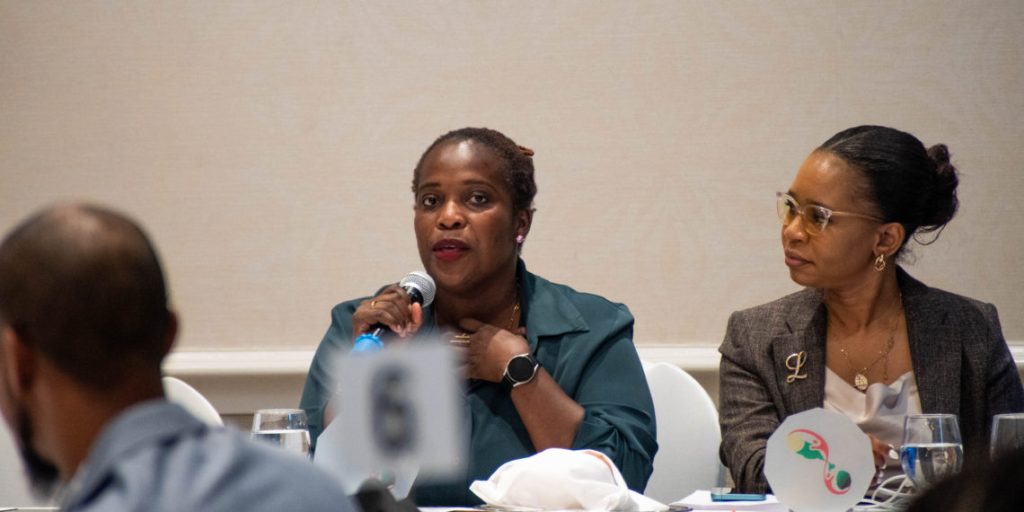St. Kitts and Nevis Secures EC$300 Million Loan: Concerns Raised Regarding Potential Return to IMF.
The twin-island federation of St. Kitts and Nevis is facing a potential debt crisis following a substantial loan agreement with the African Export-Import Bank (Afreximbank). Prime Minister Dr. Terrance Drew and Minister of Economic Development Samal Duggins secured a combined US$90 million loan, equivalent to EC$300 million, raising concerns about the nation’s fiscal stability. This substantial borrowing comes at a time when the country is already struggling with a significant deficit, projected to reach EC$274 million for the current fiscal year, compounding an existing EC$311 million deficit. Critics fear this borrowing spree could lead the nation back to an IMF bailout, a scenario successfully avoided during the previous administration.
The loan agreement comprises two distinct portions: US$50 million allocated for social infrastructure projects championed by Prime Minister Drew, and US$40 million earmarked for a major port development project under Minister Duggins’ purview. While the government presents these initiatives as crucial investments in the nation’s future, emphasizing improvements to schools, hospitals, housing, and infrastructure, financial experts express serious concerns about the long-term implications of such substantial borrowing in the context of existing fiscal challenges. The concern is exacerbated by the lack of transparency surrounding the projects and the absence of a clear demonstration of their potential return on investment.
The current administration’s approach to economic management stands in stark contrast to the fiscal prudence practiced by the former Team Unity Government led by Dr. Timothy Harris. During their tenure from 2015 to 2022, the Harris administration not only repaid the nation’s IMF debt in full but also refrained from any external borrowing. They successfully implemented social programs like PAP, PEACE, and the Nevis Income Support Programme and executed significant capital projects, including a second cruise pier and island-wide road rehabilitation, all without incurring additional debt. This fiscally conservative approach is now being questioned in light of the current administration’s seemingly debt-driven strategy.
The government’s justification for the loan hinges on the promise of transformative development. Prime Minister Drew has framed the investments as personally motivated by his commitment to uplifting the citizens, while Minister Duggins touts the port development as a landmark achievement. They present these projects as vital steps towards modernizing the nation and improving the lives of its people. However, critics argue that this narrative masks a concerning lack of fiscal responsibility. The concern is that the government is prioritizing short-term gains and political expediency over long-term economic stability, potentially jeopardizing the nation’s financial future.
The core issue lies in the sustainability of this borrowing spree. With a burgeoning national debt and no clear repayment plan, economists warn that the current trajectory could necessitate another IMF intervention. The fear is that the government’s optimistic rhetoric about progress and transformation is disconnected from the harsh economic realities of accumulating debt. The lack of transparency surrounding the projects further fuels these anxieties. Without a clear understanding of how these investments will generate revenue and contribute to the nation’s economic growth, the fear of an impending financial crisis remains palpable.
The Afreximbank loan agreement has reignited the debate about fiscal responsibility and economic management in St. Kitts and Nevis. The contrasting approaches of the current and previous administrations highlight the crucial importance of balancing ambitious development goals with prudent financial planning. The significant borrowing undertaken by the Drew administration raises serious questions about the nation’s long-term economic prospects and the potential consequences of prioritizing short-term gains over sustainable growth. The lack of transparency and the absence of a clearly articulated debt repayment strategy further amplify these anxieties, leaving many citizens questioning whether the nation is on a path back to IMF dependency.
Share this content:










Post Comment